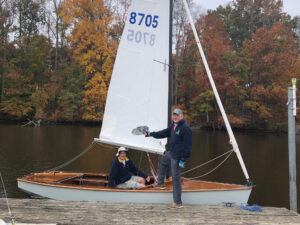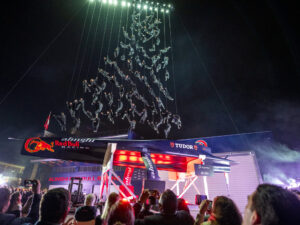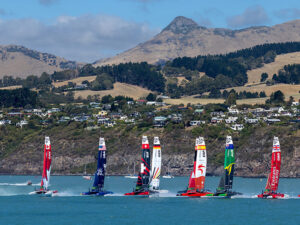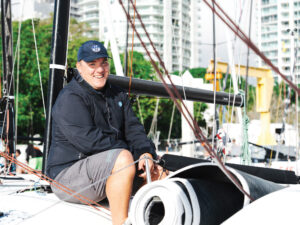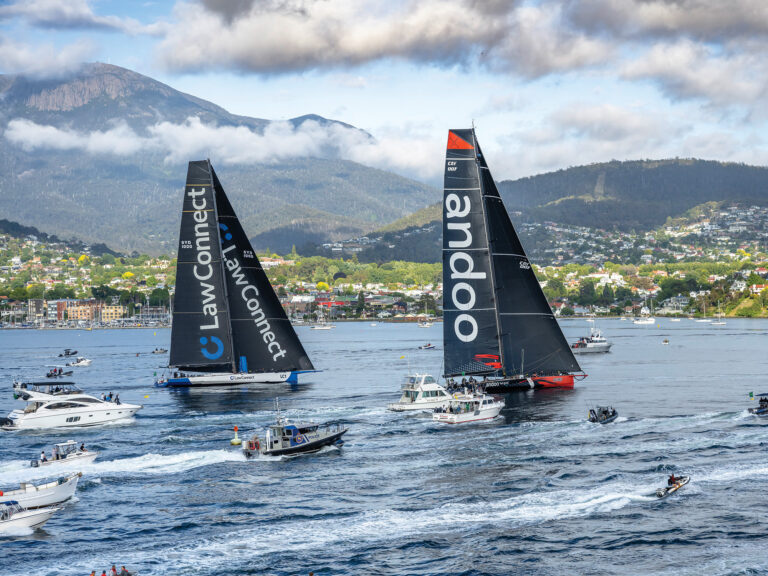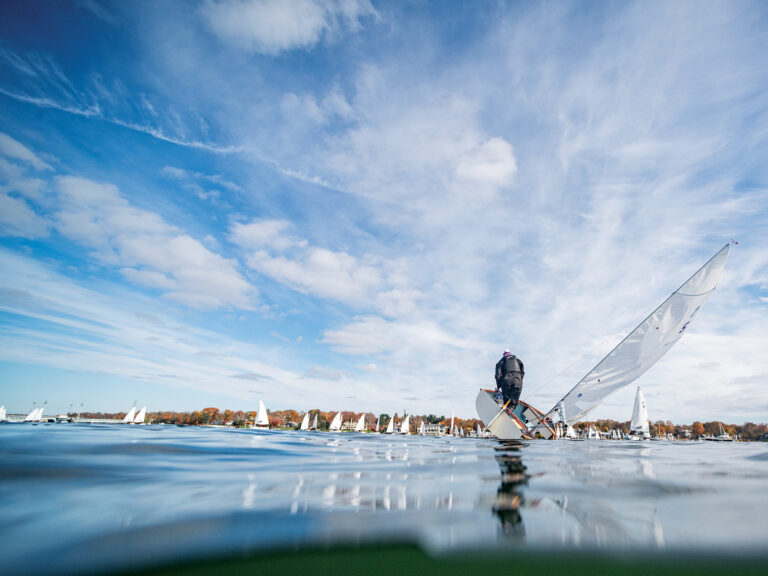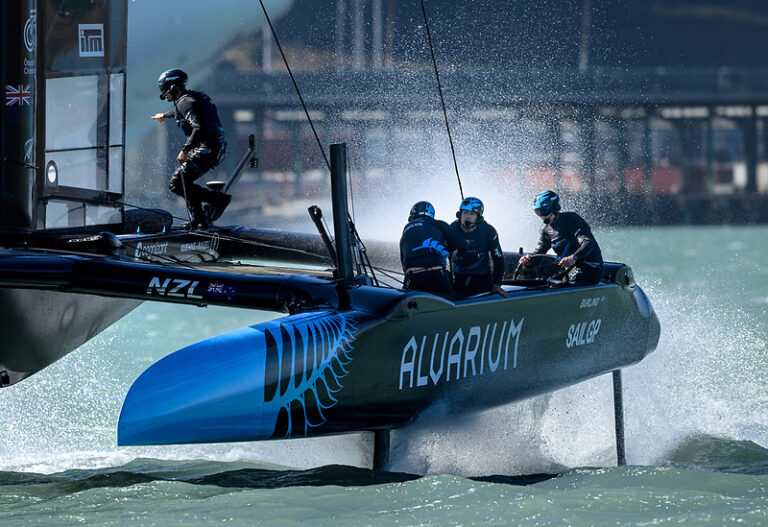
Isler368
Race Week ended with a great day of “T-shirts and shorts” trade wind sailing. In our Mini Maxi class, RAN continued to set the pace and finished the week undefeated, with ten straight bullets. Sure, it was only a three-boat class, but we put up a good fight at times on SHOCKWAVE, as did Dan Meyers and his always sharp NUMBERS team. Hats off to the RAN guys for sailing a nearly perfect regatta. They were fast, and they sailed smart—a tough combination to beat. The one race where they were called over early at the start, they also showed they could be lucky, too: They were back in the lead at the first top mark, thanks to splitting to the right side for maximum leverage and a finding a juicy “righty.”
On Sunday, after three days of practice, I was thinking what a great feeling there is around the fleet the day before racing starts. Most boats had put in at least a couple of days of good practice, we were all enjoying Key West’s ample ambiance, and everybody was still a winner. By the middle of the week, smiles may not have been so prevalent around the docks, as the stresses and strains of competition crept into our tropical-racing vibe. And, of course, there can only be one winner in each class; there are always a lot more of us “also rans” than winners. But that’s the nature of sport and competition.
I met plenty of folks last night at the event party headquarters that clearly did not come down to Race Week with the expectation of winning. They loved the sailing, but they were also enjoying the shoreside part of the regatta. I extolled the virtues of sailing’s social side earlier, so I won’t go on now. But I’m thinking about how the vast majority of the fleet (all of us also-rans) deal with the fact that we didn’t win. Expectations before a regatta come in all sizes and shapes. But it occurs to me that the test of a team’s success in a regatta, beyond the final scoreboard, is how much the crew learned/improved, and a lot of that does have to do with the expectations you had going into the regatta.
Coaches and sports-performance experts talk about setting goals—reasonable, achievable goals before a competition. And now, on the back end of a regatta, is a time for racers to assess their achievements and to try to make sure that they bank all the learning that occurred out on the racecourse. Now is a great time to try to capture the good stuff that came out of a week of sailing amongst top-notch competition.
Everybody scatters pretty quickly at the end of an event like Key West. I’m a good example—on an airplane heading homewards only a few hours after the last finish. But if you could get everybody on the crew to write down a short regatta report/critique, it could be invaluable. Now is a good time, too, to refine the “playbook” for each position on the boat. After a week in Key West, even the most uncommon maneuvers have been performed a few times at least. What better time to build a position-by-position playbook than right now? The same exact crew may not be aboard at the next regatta. Plus, the newbies will benefit from past experience. And even if the same crewmembers return, they will have forgotten some of the nuances of their position and will benefit from a re-read of their regatta notes. And now is a good time as well to consider the pre race goals, and assess if they were truly realistic.
So we bid Key West adieu, at least for another year. Fingers are crossed that Peter Craig and team can find a way to keep the event going despite these challenging economic times. They have a great venue for wintertime racing and a great race-management team. Thanks to all of them for 25 great years of racing in Key West.

